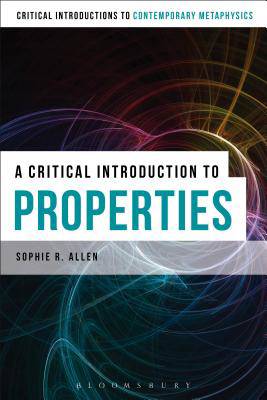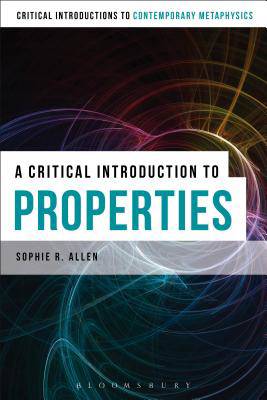
- Retrait gratuit dans votre magasin Club
- 7.000.000 titres dans notre catalogue
- Payer en toute sécurité
- Toujours un magasin près de chez vous
- Retrait gratuit dans votre magasin Club
- 7.000.0000 titres dans notre catalogue
- Payer en toute sécurité
- Toujours un magasin près de chez vous
Description
What do blue things have in common? Or electrons? Or planets? Distinct things appear to share properties; but what are properties and what is the best philosophical account of them? A Critical Introduction to Properties introduces different ontological accounts of properties, exploring how their formulation is shaped by the explanatory demands placed upon them.
This accessible introduction begins with a discussion of universals, tropes, sets and resemblance classes, the major objections to them and their responses, providing readers with a firm grasp on the competing ontological accounts of what (if anything) grounds similarity and difference. It then explores issues concerning the formulation and justification of property theories such as: how many properties are there? Should we accept a sparse ontology of properties, or an abundant one? Can we make a distinction between intrinsic and extrinsic properties? Do properties have their causal roles necessarily? What is the relationship between properties and other metaphysical phenomena such as causality, laws and modality? These questions get to the heart of why a coherent theory of properties is so important to metaphysics, and to philosophy more generally. By concluding with the question of the ontological status of properties, the reader is introduced to some Carnapian and contemporary themes about the content and methodology of metaphysics. For students looking for an accessible resource and a more comprehensive understanding of contemporary metaphysics, A Critical Introduction to Properties is a valuable starting point.Spécifications
Parties prenantes
- Auteur(s) :
- Editeur:
Contenu
- Nombre de pages :
- 240
- Langue:
- Anglais
- Collection :
Caractéristiques
- EAN:
- 9781472575593
- Date de parution :
- 25-02-16
- Format:
- Livre broché
- Format numérique:
- Trade paperback (VS)
- Dimensions :
- 155 mm x 234 mm
- Poids :
- 421 g

Les avis
Nous publions uniquement les avis qui respectent les conditions requises. Consultez nos conditions pour les avis.






